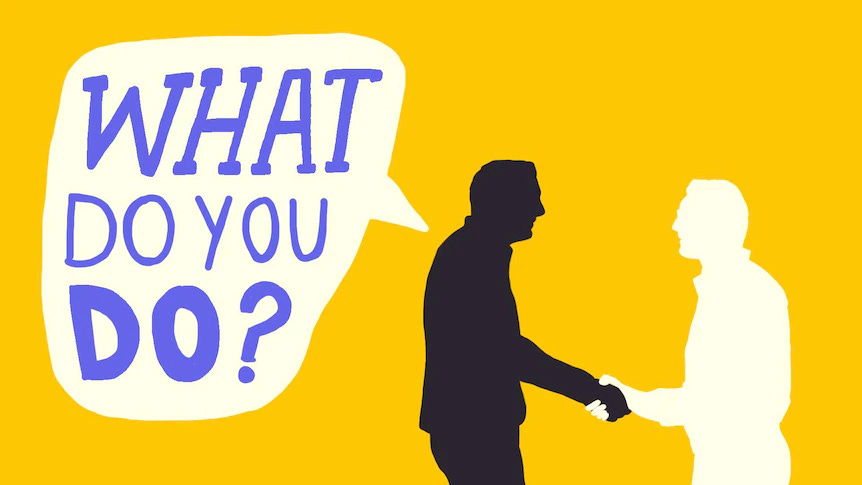Beyond The Smalltalk: Let’s kill the “What Do You Do?” question, shall we?
I think we can all do better than asking the most predictable question...
There’s no other question I’d like to see retired more than the one people ask the most: “What do you do?”
It’s particularly prevalent in cultures driven by capitalism and individualism. Take the U.S., for example—the marquee capitalist society. It’s one of the most common questions people use to start a conversation. In Western cultures especially, we’re often defined by our jobs and professional pursuits. We attach enormous value to our professional identities, and so does society. It’s not surprising, then, that in a culture where work defines us, people instinctively ask this question to gauge and understand one another.
Don’t get me wrong—I understand the importance of building rapport when you meet someone for the first time (or after a long time apart). You can’t jump straight into a deep conversation without first establishing some trust. That’s a given. But still, I think we can do better than “What do you do?”
Not everyone defines themselves by their job. In fact, not everyone wants to be defined that way. Some people prefer to be known for who they are—their passions, how they show up for others, what they read or think about in their spare time, or what makes them feel alive.
We are all so much more than our jobs, and starting every interaction with “What do you do?” misses the chance to see that. Often, the question isn’t entirely innocent either. Whether we admit it or not, we sometimes use the answer to size someone up: What’s their financial situation? Could they be professionally useful to us?
But here’s the thing: humans are layered and sophisticated, and our value is so much more than what we do for work. I’m not suggesting we avoid talking about our professions entirely—it’s a natural topic—but there are better, more thoughtful ways to approach it. We can give the other person the chance to decide how much they want to share and how they want to represent themselves.
For example, instead of asking, “What do you do?” you could ask:
“What’s something you’re passionate about lately?”
“What's something new you learned recently?”
“What’s a project or idea you’ve been excited to dive into?”
These kinds of questions shift the conversation. They feel less transactional and more curious, allowing the other person to open up about something they care about.
The first question you ask sets the tone for the entire conversation. It’s like saying, “This is the kind of interaction I want to have with you.” A default question leads to a default conversation. But a thoughtful, open-ended question? That can lead to connection, discovery, and the kind of dialogue you’ll both remember.
So the next time you’re tempted to start with “What do you do?” pause. Try something different. You might be surprised where the conversation takes you.
If you know someone who could benefit from this post, please share it with them!
Thank you, Omid Scheybani.





